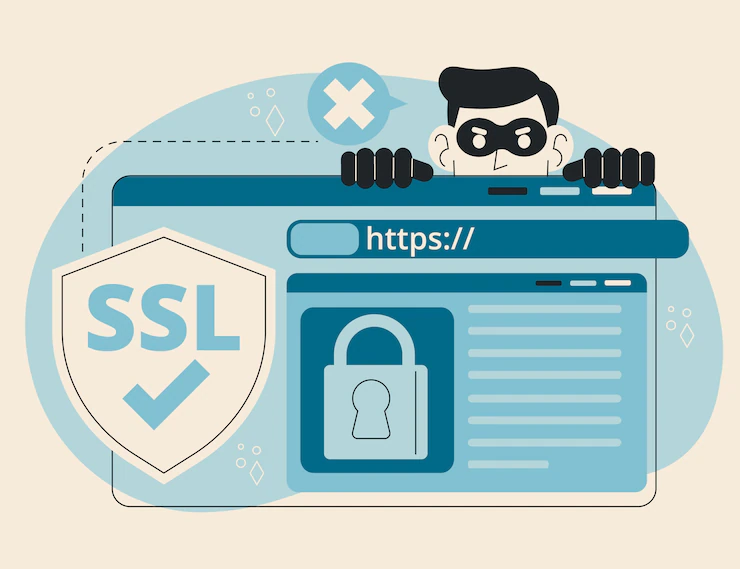Advantages of Having An SSL Certificate
- 1 What is an SSL Certificate?
- 2 Key Advantages of Having an SSL Certificate
- 2.1 1. Enhanced Security
- 2.2 2. Trust and Credibility
- 2.3 3. Improved SEO Rankings
- 2.4 4. Compliance with Regulations
- 2.5 5. Preventing Phishing Attacks
- 2.6 6. Data Integrity
- 2.7 7. Encouraging Visitor Interaction
- 2.8 8. Future-Proofing Your Website
- 2.9 9. Enhancing Brand Reputation
- 2.10 10. Boosting Conversion Rates
- 3 Types of SSL Certificates
- 4 Implementing SSL on Your Website
- 5 Conclusion
In today’s digital age, the security of online information is paramount. As the internet becomes a more integral part of our lives, the need to safeguard the data transmitted between users and websites has never been more critical. One of the foundational tools for ensuring online security is the SSL certificate. This article delves into the myriad advantages of having an SSL certificate, elucidating why it is essential for any website owner or administrator.
What is an SSL Certificate?
SSL, or Secure Sockets Layer, is a standard security protocol that establishes an encrypted link between a web server and a browser. This ensures that all data passed between the two remains private and integral. An SSL certificate is a digital certificate that authenticates the identity of a website and enables an encrypted connection.
When a website has an SSL certificate, it displays “HTTPS” in its URL instead of “HTTP,” and a padlock icon appears in the address bar, signaling to users that their connection is secure.
Key Advantages of Having an SSL Certificate
1. Enhanced Security
The primary advantage of an SSL certificate is its ability to secure sensitive data such as usernames, passwords, credit card information, and other personal details. SSL encryption protects data from being intercepted by malicious actors during transmission, thereby preventing data breaches and cyberattacks. This is particularly crucial for e-commerce sites, banking platforms, and any site that handles sensitive information.
2. Trust and Credibility
When visitors see a padlock icon and “HTTPS” in their browser’s address bar, it instills a sense of trust. Users are more likely to engage with a website and complete transactions if they know their data is protected. In contrast, websites without SSL may display a “Not Secure” warning, which can deter users from entering personal information or making purchases.
3. Improved SEO Rankings
Search engines, particularly Google, prioritize websites that use HTTPS over those that don’t. In 2014, Google announced that SSL would be a ranking factor in its search algorithm. Consequently, having an SSL certificate can enhance your site’s search engine ranking, driving more organic traffic to your site. This SEO boost can be significant, especially for competitive keywords where every advantage counts.
4. Compliance with Regulations
Many data protection regulations and standards, such as the General Data Protection Regulation (GDPR) in the European Union and the Payment Card Industry Data Security Standard (PCI DSS), mandate the use of SSL certificates for websites that handle personal or financial data. Compliance with these regulations is not only a legal requirement but also crucial for avoiding hefty fines and maintaining a reputable business.
5. Preventing Phishing Attacks
Phishing attacks involve cybercriminals creating fake websites that mimic legitimate ones to steal sensitive information. SSL certificates help prevent such attacks by verifying the authenticity of a website. When users see a secure connection, they can be more confident that the site is genuine and not a fraudulent copy, reducing the risk of falling victim to phishing schemes.
6. Data Integrity
SSL certificates ensure that data is transmitted without being altered or corrupted during transfer. This is vital for maintaining the integrity of information, particularly for online transactions and communications. Without SSL, data can be tampered with, leading to potential fraud and errors.
7. Encouraging Visitor Interaction
Websites with SSL certificates generally see higher engagement levels. When users feel secure, they are more likely to interact with the site, whether by filling out forms, making purchases, or sharing personal information. This increased interaction can lead to higher conversion rates and better overall site performance.
8. Future-Proofing Your Website
As internet security standards continue to evolve, the use of SSL certificates is becoming increasingly ubiquitous. By adopting SSL now, you not only protect your current operations but also future-proof your website against emerging security threats and compliance requirements. This proactive approach can save time and resources in the long run.
9. Enhancing Brand Reputation
A secure website enhances your brand’s reputation. Businesses that prioritize user security are viewed more favorably by customers. In today’s competitive market, establishing a reputation for reliability and security can be a significant differentiator, helping you attract and retain customers.
10. Boosting Conversion Rates
SSL certificates can directly impact your bottom line by boosting conversion rates. Users are more likely to complete transactions and trust a site with visible security indicators. For e-commerce sites, this can translate into increased sales and revenue. Studies have shown that users abandon shopping carts on non-secure sites due to security concerns, making SSL a critical component for conversion optimization.
Types of SSL Certificates
To fully leverage the benefits of SSL, it’s essential to choose the right type of SSL certificate for your needs. Here are some common types:
- Domain Validated (DV) SSL: This basic level of SSL certificate verifies that the domain name is registered and that the applicant has administrative rights to the domain. It’s suitable for small websites and blogs.
- Organization Validated (OV) SSL: This type offers higher assurance by validating the organization’s identity along with the domain name. It’s ideal for businesses and organizations that handle more sensitive information.
- Extended Validation (EV) SSL: The highest level of SSL certification, EV SSL provides extensive validation of the business’s identity and offers the highest level of trust. Browsers typically display a green address bar or the company name next to the URL, enhancing user confidence.
- Wildcard SSL: A Wildcard SSL certificate secures a domain and all its subdomains. This is cost-effective for businesses that operate multiple subdomains under a single primary domain.
- Multi-Domain SSL: Also known as SAN (Subject Alternative Name) SSL, this type secures multiple domains and subdomains with a single certificate. It’s useful for organizations managing several related websites.
Implementing SSL on Your Website
Implementing SSL is a straightforward process but varies depending on your hosting environment and the type of SSL certificate you choose. Here’s a general outline of the steps involved:
- Choose the Right SSL Certificate: Based on your website’s needs, select the appropriate type of SSL certificate.
- Purchase and Activate the Certificate: Buy the certificate from a trusted Certificate Authority (CA) or reseller.
- Install the Certificate: Follow the CA’s instructions to install the certificate on your web server.
- Update Your Website: Ensure all URLs point to HTTPS, update any hard-coded links, and configure redirects from HTTP to HTTPS.
- Test the Installation: Verify that the SSL certificate is installed correctly and that your site is accessible via HTTPS.
Conclusion
In an era where online security is of utmost importance, having an SSL certificate is no longer optional but a necessity. From enhancing security and building trust to improving SEO rankings and complying with regulations, SSL certificates offer numerous advantages that can significantly impact the success of your website. By investing in SSL, you not only protect your users but also strengthen your brand’s reputation and ensure your website’s future resilience against evolving cyber threats.
Adopting SSL is a step toward a safer, more secure internet for everyone. Whether you run a small blog or a large e-commerce site, the benefits of SSL make it a crucial component of your online presence. Don’t wait until it’s too late—secure your website with an SSL certificate today and reap the rewards of a more secure and trustworthy online experience.

















